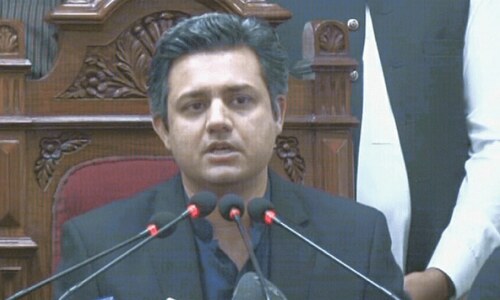ISLAMABAD: Research and development remains lowest on the government’s list of priorities.
The government declined another request from the Ministry of Science and Technology to provide funds for research in emerging technologies such as fuel cell and nano-technologies to meet the future energy requirements.
Instead, in the budget 2015-16, the government allocated Rs10 million each for two un-approved projects, including establishment of a technology park. The allocations were made against the ministry’s demand for Rs2.4 billion.
When Secretary Ministry of Science and Technology Kamran Ali Qureshi was asked if he was satisfied with the allocations, he said, “Not at all. It is far less than what we had demanded.”
Mr Qureshi said the government had instead asked the ministry to only complete the ongoing projects.
“We have been confined to this guideline by the Planning Commission. We cannot take initiatives. Twice the government has conveniently declined our request to initiate research in emerging technologies in which Pakistan is far behind,” said the secretary.
Research and development in emerging technologies such as nano-technology and bio-technology revolution, fuel cell tech, satellite launch capability and renewable energy technology were the main part of the ruling party’s election manifesto.
The 17 organisations under the ministry of science such as the Pakistan Council for Research in Water Resources, National Institute of Electronics and the Pakistan Council for Scientific and Industrial Research have been deprived of research funding for many years.
Despite the shortage of funds for research, these departments have been struggling to deliver in different sectors such as renewable energy, health, medicine, agriculture and water.
“We had urged the government to follow examples of advanced countries such as Israel, Korea and Japan which invested heavily in research and development,” said a senior official of the ministry of science.
Funding for research and development in the country is just 0.29 per cent of the Gross Domestic Product (GDP), he added.
“We had asked the government to double the figure to at least 0.5 per cent of the GDP and increase it four times by 2018.” The ministry has also been complaining how the lack of funding for research had caused a brain drain. Most advanced countries in the West and Middle East have hired the services of Pakistani researchers.
The official said the last time these organisations received proper funding was in 2007-08 when aid money was being injected into Pakistan from outside. Funds provided for research to NIE today is less than what it received 40 years ago and the organisation came into being. And the PCSIR has roughly Rs500,000 to keep more than 70 research project buoyant, said the official.
Published in Dawn, June 6th, 2015
On a mobile phone? Get the Dawn Mobile App: Apple Store | Google Play














































Dear visitor, the comments section is undergoing an overhaul and will return soon.